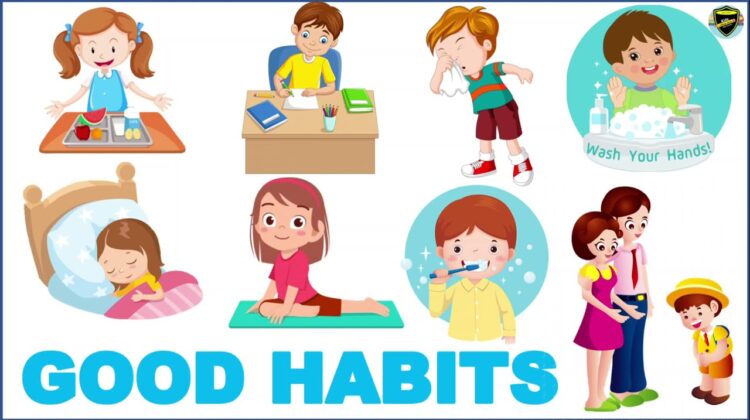
Studies show that children develop habits by the age of nine. Kids pick on different behaviors at this age and are influenced easily. Parents must promote healthy habits as early as possible to ensure their kids make the right choices. On the other hand, habits can be irreversible if they are instilled too late in kids.
But why are habits so significant in an individual’s life? It is because they determine how a person will behave once their character is developed.
All your actions will be influenced by the habits you have. The consequences will be a direct result of how you process things. With that in mind, we have created a list of ways to help parents instill healthy habits in their children. The ride might be bumpy, but these tips will surely help you.
1) Eat at least one meal together
Most families prefer to have dinner together. The point is to have time to communicate regardless of busy schedules. It also allows parents to see what their children have been up to. Ask your kids questions about their day.
Notice how they are behaving and answering those questions. You can say a lot about how they are doing physically and mentally. Remember that the signs to look out for in children may differ according to age. You might want to ensure that your teen is not indulging in substance abuse while your toddler is not getting bullied.
This diner table interaction is supposed to be a silent evaluation of the current habits of your children. It will help you understand which of your instructions they will follow. You can then use this information as a way to guide them better.
Sometimes, children find it difficult to share everything with their parents. You have to create opportunities to observe these positive and negative changes. You can also take action against any issues they might be facing.
2) Understand the science behind developing habits
The four-stage process of building a habit includes cue, craving, response, and reward. Understanding these stages will give you a deeper insight into how habit development works. This will also make it easier for you to make or break habits.
Cue is where it all begins. At this stage, your brain is stimulated to initiate behavior, making you feel close to a reward; hence, you start craving it. Craving suggests that it is not the habit you are looking for but instead the feeling of satisfaction that comes with indulging in the act.
This craving motivates a response which is the third step. Whether or not you respond to it depends on how willing you are to exert yourself in the habit. Once you complete the act, you get a reward. In simple terms, the cue is about identifying a reward, craving is about wanting the reward, and response is about putting effort into achieving the reward.
It is essential to understand that if you break the four-stage process, the habit will never form. For example, you will never execute your idea if you do not respond to the craving. Hence, if parents wish to form a habit, they should ensure they see all the stages through. Providing support to complete all processes and being consistent is necessary.
3) Role modeling
Role modeling begins during primary socialization at home. Parents are the first people we observe and try to copy. You must have seen young girls wear their mom’s heels around the house. They do this out of the urge to look like their mother.
Kids notice more than we think. They imitate the way we sit, walk and talk. Learning by imitation is how they develop their personality until secondary socialization starts.
This places a significant responsibility on parents to always be on their best behavior. It also means they should have healthy habits for their children to copy.
If you want your child to do something you want, you must do it first by having your child observe you for a few days. It could be as simple as drinking a good amount of water. When you do it regularly for a week or so, your children will notice and imitate you. Make small changes to your routine for your kids to observe. Doing this will also lead you to a healthier lifestyle.
4) Provide reasoning
Children are incapable of understanding the dangers and blessings life has to offer. You can not expect a newborn to be scared of a snake. This knowledge comes when you tell them that a snake can bite. The next time they see a snake, they will know to keep a safe distance.
Similar is the case with building or breaking habits. We see parents tell their children not to do something without telling them why, for example, touching a hot cup of tea. Not taking the time to explain to your kid why you are saying No will lead to no learning. It will not instill in them the urgency to avoid or follow a habit.
Hence, always provide reasoning behind an instruction. Take your time explaining why specific things operate the way they do and why you do certain things to achieve your goals.
Conclusion
Children’s minds are very malleable. They can get influenced easily, so you must use this to your advantage and instill good habits in them while they are young. However, remember not to be too demanding or harsh.
Not letting them explore things to ensure safety will stunt their mental growth. They will not be able to build an individual personality. Instead, allow them to be inquisitive and look for answers. Provide reasoning for every question they have.
Try to bring a change on a mental level to instill a habit. Stay uninvolved to make sure they are safe but do not intervene. Doing this will allow them to develop a habit because forcing never works.

